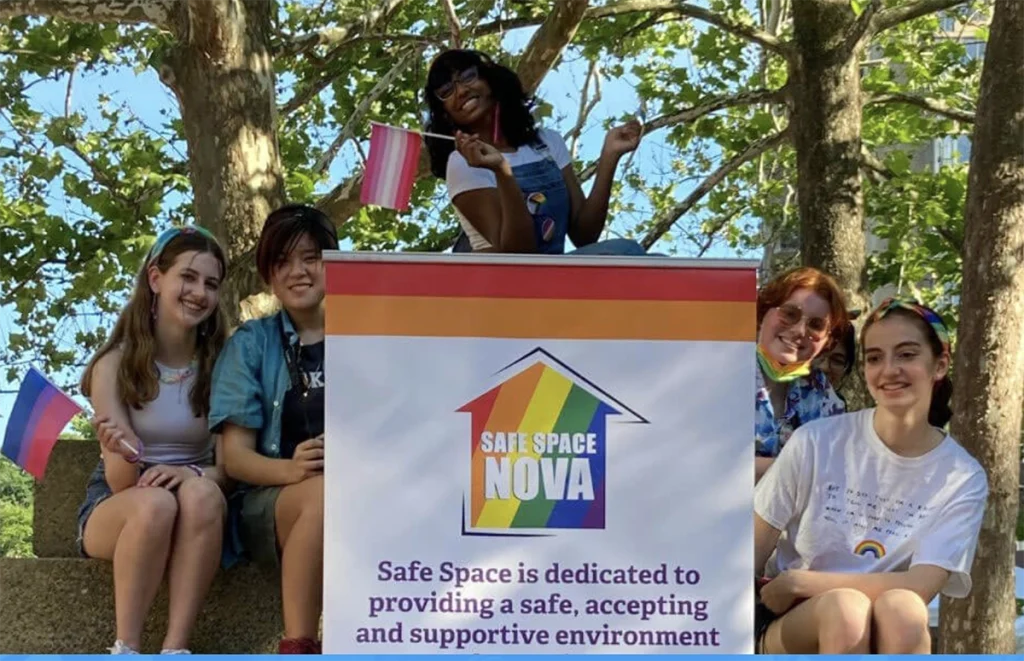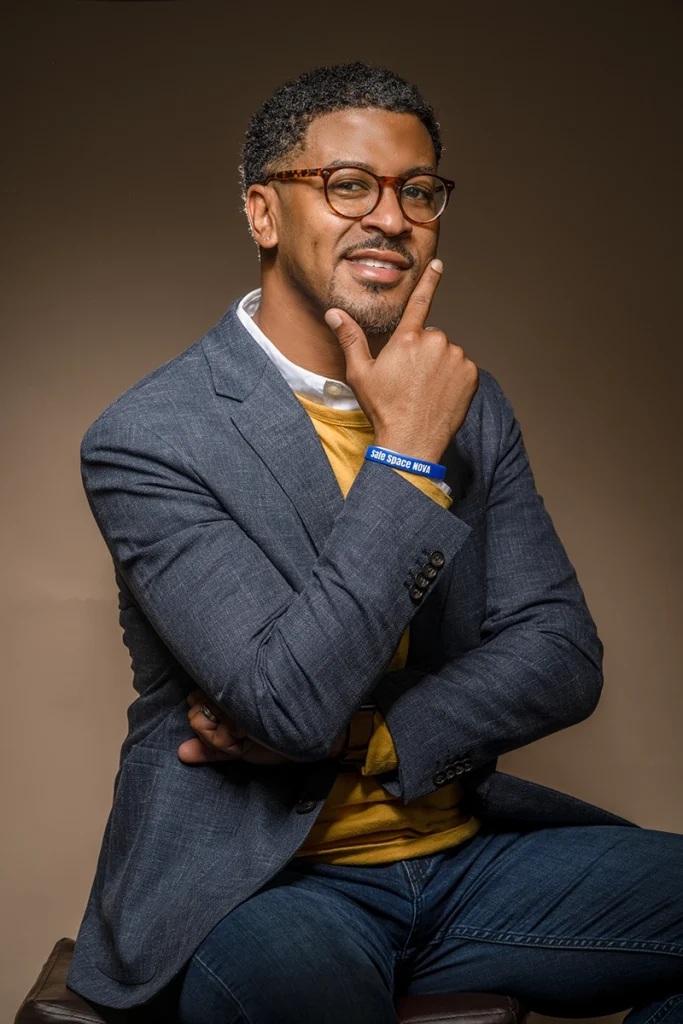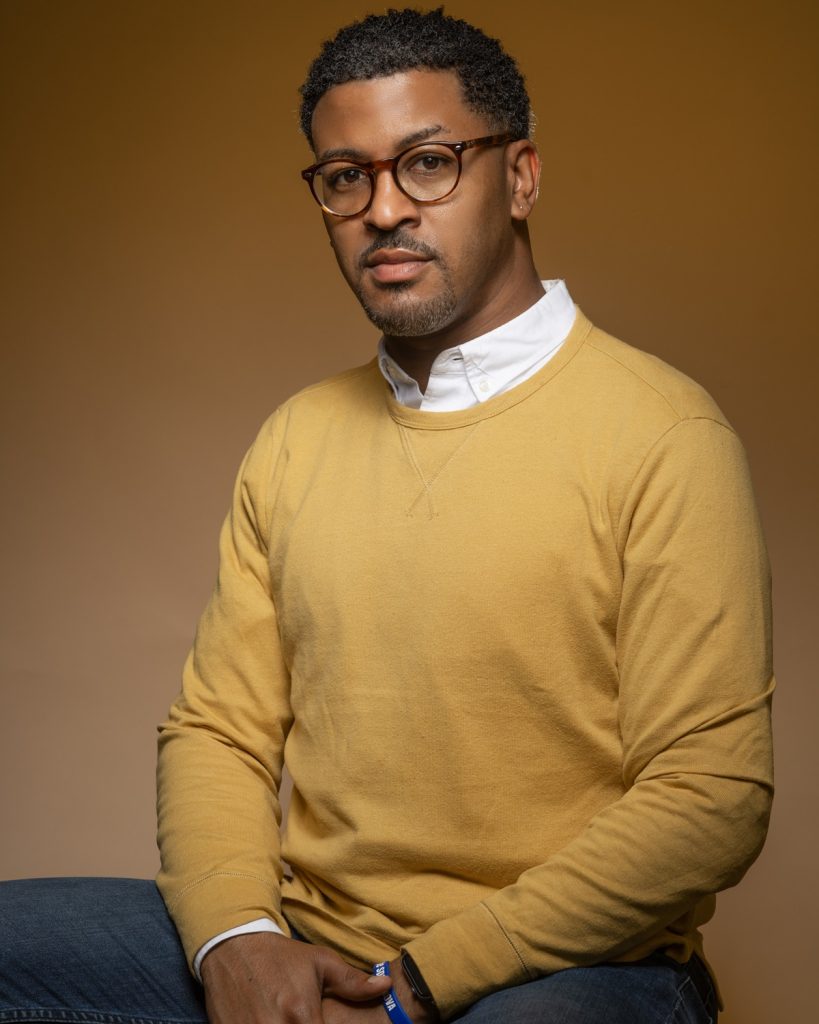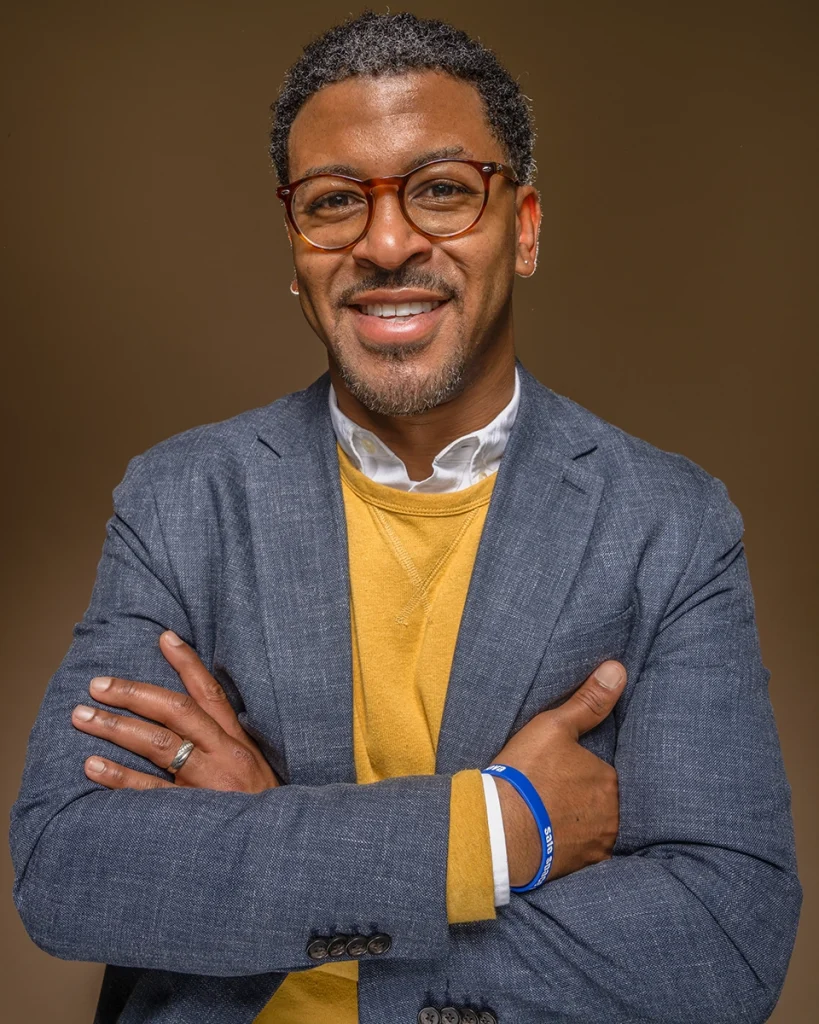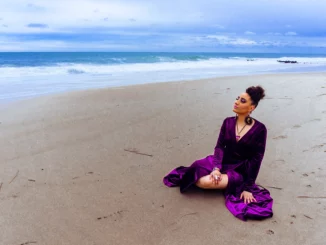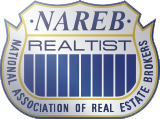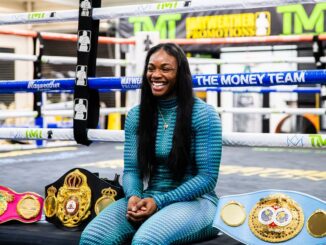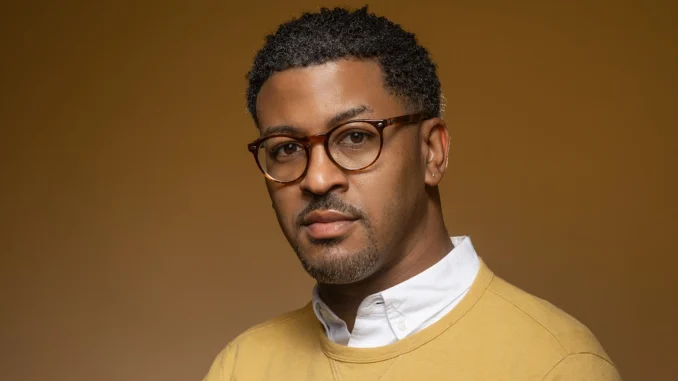
By Staff
Jordan, your professional path has traversed several fields—from technology to nonprofit leadership to clinical social work. What internal or spiritual shift led you to leave a lucrative career in IT to pursue a life of service?
I found my way into the Information Technology field somewhat by chance. After graduating college in 2007 with a degree in television production, job opportunities in that area were limited. After an extensive search, I accepted a position as an administrative assistant at an IT health consulting firm. Within six months, after exceeding expectations, I was offered an opportunity to transition into Account Management—a role that appealed to my interest in human interaction and problem-solving. In short, my entry into IT happened by happenstance, not by design.
Becoming a social worker, on the other hand, was never part of my original plan. What sparked the shift was my long-standing passion for mentoring and tutoring youth—a volunteer commitment I began during college and found deeply rewarding. Over time, I realized I wanted to make a greater impact within my community, particularly by supporting LGBTQ+ youth. When I discovered that no such organization existed locally, I began to envision what it might take to create one. That vision became the foundation of my journey into social work.
Safe Space NOVA was born from both personal experience and professional purpose. Can you take us back to the moment when you knew this organization had to exist—and what that decision meant for you personally?
Safe Space NOVA was born from my own experiences as a young person. Growing up in Atlanta, I often felt isolated and without a community. I was teased, tormented, and bullied for not fitting the stereotypical image of what a young male “should” be. These experiences led me to a place of deep depression and anxiety, even suicidal thoughts. Having lived through those struggles, I understood the importance of creating a space that would counter these feelings and send the message: you are not alone.
In 2014, living in a seemingly liberal area, I was surprised to find no organization specifically supporting LGBTQ+ youth, youth who face documented higher rates of depression, anxiety, and suicidal ideation. Recognizing this gap and drawing from my own experiences, I knew more needed to be done. At that time, I operated from a place of determination: if this organization didn’t exist, I would create it. And I did.
As both a psychotherapist and a nonprofit founder, how do you see the relationship between mental health and belonging, especially among LGBTQ+ youth?
Belonging is about having a space in the world where you are not alone, where there are others who understand and share similar experiences. It is one of the most important factors in combating common mental health challenges among LGBTQ+ youth and other vulnerable populations. Imagine navigating life believing you are the only one like you, which is a deeply isolating experience. Safe Space NOVA was founded on the belief that no one should have to feel that way. There are LGBTQ+ youth who face similar struggles, and there are LGBTQ+ adults who have been through them and emerged in a much better place, both mentally and in life overall. Many LGBTQ+ youth face rejection at home or within their communities. How does Safe Space NOVA help them rebuild trust, confidence, and self-worth?
Your own upbringing in Atlanta shaped your understanding of identity and acceptance. How have those early experiences influenced the kind of leader and healer you’ve become?
I was raised by what I call a strong Black woman on the principle, “to whom much is given, much is expected.” My commitment to service didn’t begin as an adult or even in college. It started in my youth through participation in events with my Boy Scouts troop. From an early age, I discovered the joy and fulfillment of giving back.
I was also shaped by a family of trailblazers and activists. My paternal grandparents, Dr. James H. Costen and Dr. Melva Costen, were close friends of Martin Luther King Jr. and pillars of the Civil Rights Movement. Their living room displayed a photo of them with Dr. King, plotting their next steps in the struggle for justice. Both were deeply involved in the religious community: my grandfather served as President of the Interdenominational Theological Center, while my grandmother was a tenured professor who developed educational programming around music and worship—experiences I witnessed firsthand as I was growing up.
On my mother’s side, my grandparents, Dr. Obidiah Jordan and Ethel Jordan, were lifelong educators in the public school system. My grandfather served as a principal and teacher, while my grandmother remained in the classroom. From both sides of my family, I inherited a legacy of education, activism, and the drive to exceed expectations.
My mother, a twice-educated professional, often found herself as the only person of color in the rooms she entered as a consultant. Her perseverance and excellence further shaped my understanding of achievement through the lens of a minority experience. It also helped define how I lead and set an example for others.
Heart & Soul readers are deeply engaged in holistic well-being—mind, body, and spirit. What lessons from your clinical work do you think all of us can apply to create safer emotional spaces in our daily lives?
One of the most important lessons I’ve learned is to prioritize your own well-being and self-care through the many avenues available. So much of our lives are spent giving to others, family, friends, colleagues, or work, yet it’s equally important to ask yourself: what are you doing that replenishes you or sparks joy? If you can’t answer that, there’s more work to be done.
Another crucial lesson is learning to establish healthy boundaries. I often get asked, “What is a boundary?” My response is that a boundary is a way to tell others how to love and respect you. Without clear boundaries, harmful or damaging behaviors can occur, often leaving the person on the receiving end without recourse. Boundaries are essential for protecting your mental, emotional, and physical well-being.
As a licensed therapist, you specialize in trauma-informed and culturally competent care. How do those approaches shift the way you connect with clients, particularly those navigating intersectional identities?
Viewing clients through the lens of their experiences and cultural backgrounds is essential for establishing what we call in the clinical field a therapeutic rapport, or trust. Without this foundation, progress toward the goals that clients identify as important is difficult to achieve. While I cannot claim to be familiar with every experience, culture, or background, I make it a priority to learn and absorb as much as possible. My goal is to minimize the burden on clients, so they don’t have to spend excessive time explaining their cultural context when relevant information is available for me to study and use as a foundation for understanding.
What does it mean to you to serve both as a therapist and a social advocate—bridging individual healing with systemic change?
To put it simply, change and support are the foundation of my work as a therapist and social advocate. I am often asked to describe all that I do, which can be overwhelming, even for me, because I’ve taken on many roles to foster change and provide support, both at the community level as an advocate and on a personal level with individuals, couples, and families in therapy. What I consistently share is this: I am here to help and to create meaningful change that has a lasting impact. I consider myself fortunate to have the opportunity to make a difference across so many areas of people’s lives.
You’ve led discussions across the country on mental health, allyship, and resilience. What messages consistently resonate most with audiences, and what misconceptions still need to be addressed?
The message that resonates most with me is that your mental health matters. Speaking as a Black male, I know firsthand how my community often diminishes or stigmatizes seeking help from a therapist. Phrases like “suck it up,” “be strong,” or “man up” are commonly used to dictate how we should handle life’s trials, tribulations, and even trauma. I feel it is my responsibility to challenge that messaging and remind others that neglecting your mental, emotional, and physical health does a grave disservice to yourself.
While some individuals enter the spaces where I speak with skepticism, conditioned by these societal norms, many leave with a meaningful shift in mindset, similar to the progress people often experience in therapy. I am frequently met with responses like, “That’s so helpful,” or “I’m going to do better for myself,” which reinforces the importance of this work.
With your many credentials and community roles, how do you personally stay grounded? What are the practices or people that help you protect your own mental and spiritual well-being?
Self-care keeps me grounded. I make it a priority to ensure that self-care is an intentional and consistent part of my life. Self-care looks different for everyone, but for me, it includes watching nostalgic shows, spending time with friends and family, going for a run, listening to R&B music, and much more. These practices help me stay balanced and maintain the mental space needed to navigate the demands of my day and week. I consider it essential.
I encourage others to do the same. Life can be exhausting, and without some form of reprieve, it’s much more likely that you’ll experience burnout. Prioritizing self-care isn’t indulgent, it’s necessary for long-term well-being.
Looking ahead, what’s next for Safe Space NOVA—and for you as a leader who’s redefining what compassionate advocacy looks like in action?
I am excited about the continued growth and expansion of Safe Space NOVA’s programs. Currently, we offer our inclusive sex education program, You + Me, which represents the power of collaboration, individuals coming together with a shared goal, experience, or understanding. It highlights the strength and potential that emerge when diverse perspectives and skills combine to create something greater than the sum of its parts.
We also host Social Hangs; monthly gatherings open to all teens across the Washington, DC metropolitan area. These events provide LGBTQIA+ youth with an adult-facilitated safe space to connect, discuss school, coming out, dysphoria, making friends, dating, politics, family, and any other topics that matter to them.
Looking ahead, we aim to expand into mentoring, tutoring, and much more; efforts that will depend on community involvement and support. From an advocacy standpoint, my work is far from done. I am committed to fighting for equality for all vulnerable populations, including LGBTQ+ youth, until discrimination is eliminated. This is a long-term commitment, and I am here for the long haul.
About
Jordan L. Costen-Sumpter
FOUNDER & BOARD CHAIR
Jordan L. Costen-Sumpter (he/him), a native of Atlanta, Georgia, received a bachelor’s degree in Television Production from Howard University, a master’s degree in Public Communications from American University, and a master’s in Clinical Social Work from The Catholic University of America. Prior to working in the social services and nonprofit field, Jordan enjoyed a thriving career in the Information Technology space as a Technical Account Manager.
Jordan initially started working with local youth while attending college in Washington, DC. His first foray in this area was as a tutor at Maya Angelou Charter Schools. From there he went on to tutor youth with Horton Kid’s before becoming a mentor with the Space of His Own (SOHO) program in Alexandria, VA. Jordan’s other past volunteer efforts include being a Youth Facilitator with Parents, Families, and Friends of Lesbians and Gays (PFLAG), a member of the Commission for Human Rights in Alexandria and the Gay Men’s Health Collaborative among others.
When not working with Safe Space NOVA, you can find Jordan working as a clinical social worker and volunteering his time as a Community Member of Alexandria’s LGBTQ+ Task Force and Board of Directors Member with SCAN of Northern Virginia and Kids Fashion Week DMV. Jordan also spends his time speaking on panels about issues that disproportionately affect the LGBTQ+ community including mental health disorders.
About Safe Space Nova
Providing a safe, accepting, and supportive environment for LGBTQ+ youth
Providing a Safe, Accepting, and Supportive Environment for LGBTQ+ Youth is an initiative dedicated to ensuring the well-being and inclusion of LGBTQ+ young people. Our objective is to create spaces where LGBTQ+ youth feel valued, respected, and supported in expressing their identities authentically.
At the core of our efforts is the belief that all young people, regardless of their sexual orientation, gender identity, or expression, deserve to thrive in environments that affirm their identities and celebrate their diversity. We recognize the unique challenges faced by LGBTQ+ youth, including discrimination, bullying, and a lack of understanding, and we are committed to addressing these issues through education, advocacy, and community-building.
Our approach is holistic and intersectional, acknowledging the diverse experiences and identities within the LGBTQ+ community. We work collaboratively with families, schools, communities, and policymakers to implement policies and practices that promote inclusivity, respect, and acceptance.



